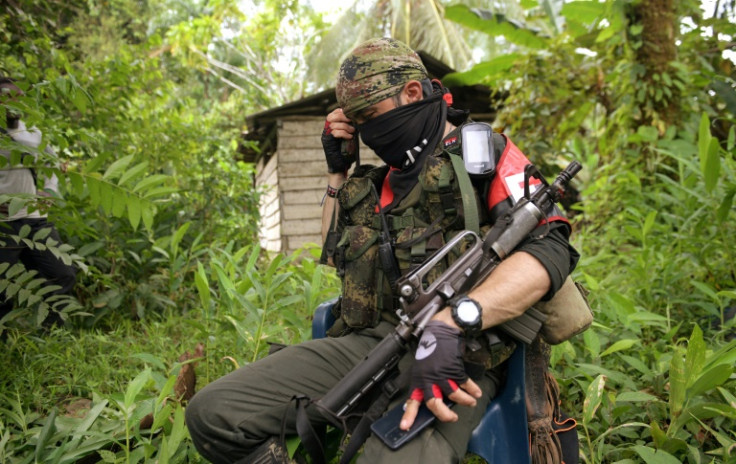
Colombian armed forces resumed their operations against a prominent guerrilla in the country, the National Liberation Army (ELN for its acronym in Spanish) after a ceasefire agreement ended without being renewed.
Defense Minister Iván Velasquez confirmed the news, saying that "offensive operations are back on and that is the order of the commander of the military, also of the director of national police."
Parts of the ceasefire had already collapsed, as the ELN had resumed kidnappings, a feared practice that provides financing for the group. According to Reuters, the remaining aspects broke down "due to the group's radical positions, diffuse chain of command and dissent in its ranks."
The development could lead to further violence against civilians, already rising throughout the year, an analysis by InSight Crime shows.
Between January and May 2024, the United Nations Office for the Coordination of Humanitarian Affairs (OCHA) reported a 36% inter-annual increase in the number of people displaced. Additionally, there was a 171% rise in people experiencing confinement and a 13.8% increase in those affected by conflict. By late June, 53,600 people had been affected by confinement and 29,200 by mass displacement.
The Pacific region, encompassing the departments of Chocó, Valle del Cauca, Cauca, and Nariño, has been particularly affected by violence this year, with criminal disputes causing increased harm to civilians.
In Chocó, the ELN and the Gaitanist Self-Defense Forces of Colombia (AGC) have been engaged in conflict over drug trafficking and illegal mining for years.
In Cauca and Nariño, the ELN and dissidents of the former Revolutionary Armed Forces of Colombia (FARC), known as the ex-FARC mafia, are fighting for control of areas crucial to the drug trafficking chain, from coca cultivation to cocaine processing and maritime drug departure ports.
The armed and criminal groups have also deepened their social control through measures such as issuing IDs to inhabitants and imposing mobility restrictions in various departments. These measures allow the groups to maintain territorial control and mobilize resources without major impediments, contributing to the ongoing violence and humanitarian crisis in Colombia, the report concluded.
An illustrating incident took place in June, when family members of Colombia's vice president were almost assassinated. On June 16, men on motorcycles opened fire on a vehicle carrying Sigifredo Márquez, the father of Vice President Francia Márquez, and her six-year-old nephew near Jamundí, Valle del Cauca. The pair escaped unharmed.
The outlet recalled other incidents, saying they are part of a broader pattern of violence by EMC groups in these departments, including assaults on police stations, military helicopters, and the use of motorcycle bombs and explosives, resulting in numerous casualties.
© 2025 Latin Times. All rights reserved. Do not reproduce without permission.





